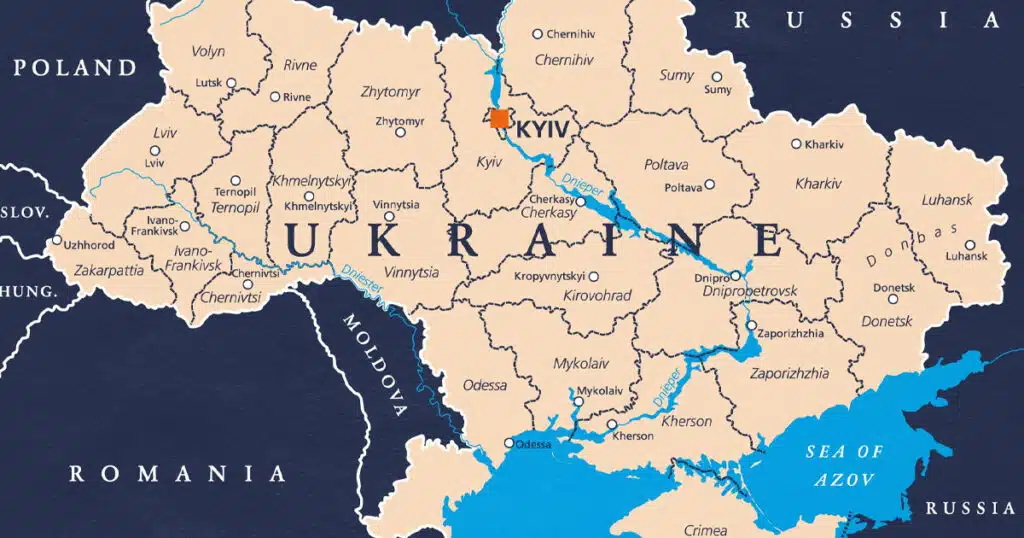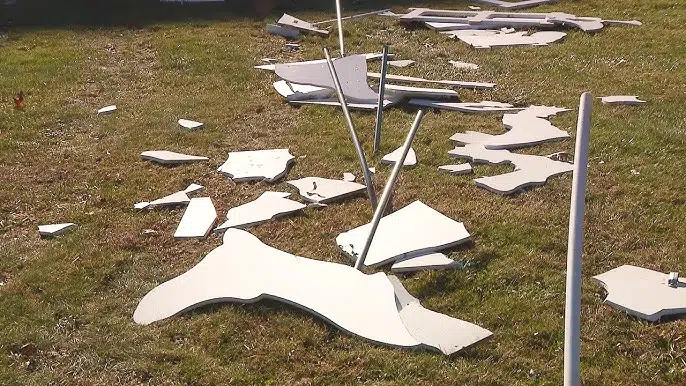
The Donbas Question
The Russian-Ukraine War is a tragic echo of the devastating conflicts of the twentieth century and its resolution is an urgent endeavor. President Trump’s summitry in Anchorage and Washington, D.C., whether a vainglorious bid for the Nobel Peace Prize or a genuine aspiration for world peace, is commendable. Success would be a historic accomplishment that would cement his legacy and affirm the power of American diplomacy. However, the achievement could also revive the hyperbole of America the indispensable nation. Such hubris poisoned post-Cold War American foreign policy and, more perilously, a new peace superintended by the United States would entangle it in a Europe that would be poised for tensions not seen since the First World War.
Two key developments marked the Anchorage meeting. Trump shifted his position on a ceasefire as a precondition and he agreed the process should instead move toward a comprehensive peace settlement. Putin reiterated his maximalist demands laid out at Istanbul in June, but he reportedly signaled his readiness to accept Western security guarantees.
Subsequent to the Washington summit, Trump endorsed security guarantees for Ukraine but stopped short of endorsing membership in NATO — notional assurances would be Article V-like, not full guarantees. Moreover, American forces would not be deployed in support.
European leaders, who were otherwise disappointed by the ceasefire concession, praised the development concerning security guarantees; Macron asserted delineating America’s role would be “first and most important.”
The fate of occupied provinces in Eastern Ukraine remains the most challenging and consequential dispute.
According to Zelensky, he and Trump inspected a map showing Russian-occupied territories, commenting they argued about the percentages depicted. Prior to the summit, the Administration rejected surrendering occupied territory; however, afterward, Trump stated, via Truth Social, that “Ukraine must be willing to lose some territory.”
Observers are right to be concerned that ratifying a transfer of occupied territory would erode the norm against territorial conquest. While transferring territory would essentially reward the aggressor, decision-makers should remember the consequences of penalizing the loser is equally dangerous.
In 1871, Prussia’s victory over France and acquisition of Alsace-Lorraine set in motion the cascade of tensions and events that would eventually engulf the entire continent in the Great War.
The France born of the defeat in the Franco-Prussian War was a nation-state conceived in humiliation. Every year following 1871, until the outbreak of World War I, a wreath was placed on the Strasbourg Monument in the Place de la Concorde in Paris while the statue itself was veiled constantly in black “to remind the French of the country’s bereavement.”
French national identity and citizenship became grounded in the collective experience of the war.
The more Germany assimilated their Alsatian trophy, the more France coveted the ceded territories.
Revanchism, equal parts patriotism and antipathy, animated grand strategy and all diplomatic and military matters were accordingly subordinated to regaining the “lost provinces”.
Regimes born of humiliation are singularly focused on retribution — France was no different and neither will Ukraine.
In the case of the former, the glory of the Second Empire was succeeded by the despondency of the Third Republic.
In the case of the latter, embattled Ukrainians will retain their republic, one armed with the continent’s most powerful military and deeply embedded in Western Europe’s near-term security framework. Nonetheless, the dysfunction and impermanence that preceded the war will return.
Ukraine’s last presidential election, won resoundingly by Zelensky, was held in 2019. After the invasion, Zelensky declared martial law and cancelled the 2024 election, a course of action permitted by the constitution. To date, the parliament continues to reauthorize martial law and Ukrainians have signaled their preference to postpone elections.
Nevertheless, Zelensky’s popularity has declined and a recent bid to rein in the country’s anti-corruption agencies prompted rare widespread protests, leading the president to reverse course shortly thereafter. Meanwhile, public trust in parliament, the judiciary, and political parties is very low.
In the late 1880s, French politics were destabilized by the rise of General Georges Boulanger, an unremarkable military officer who gained widespread support with populist stands and promises to recapture Alsace-Lorraine. Winning election to the parliament in 1889, his supporters encouraged him to seize power by coup d’état.
Boulanger flinched but the episode underscored the republic’s fragility and the potency of revanchism and “stab in the back” myths propagated by diehard nationalists and irreconcilable veterans.
In Ukraine, Valery Zaluzhny, the former commander-in-chief of the armed forces dismissed by Zelensky, has emerged as a political figure to be feared. According to The Economist, Zelensky would lose a future election by 30% to 65% to Zaluzhny. Similarly, Kyrylo Budanov, a war hero and current chief of Ukraine’s military intelligence agency, is increasingly popular, garnering public trust ratings higher than Zelensky’s in some instances.
Last year, the chair of the Ukrainian parliament’s foreign affairs committee stoked controversy by alleging nameless ultra-nationalists were a threat to the government and would actively forestall any settlement. Militants in the Ukrainian military have reportedly vowed to continue fighting regardless of a settlement. Over 75 percent of Ukrainians have indicated their enthusiasm for a political party led by war veterans.
The 2022 sabotage of the Nord Stream pipelines, immediately blamed on the Russians, has now been found to be a possible covert Ukrainian operation. According to recent reporting, the plan was overseen by Zaluzhny; Zelensky was informed but, facing U.S. objections, ordered its cancellation. The operation nonetheless proceeded, indicating Zelensky has lied about approving an act of war against his allies or does not possess complete control over his nation’s military and intelligence services.
Between 1871 and 1910, nearly 500,000 French émigrés left the provinces; the remaining French population submitted to German administration. Millions of Ukrainians have already fled the Donbas but, post-settlement, would those remaining also acquiesce?
In 1919, the Treaty of Versailles returned Alsace-Lorraine to France; in time, the remaining population had become more German, ethnically, and linguistically. By the late 1920s, aggressive French attempts to re-assimilate the local population prompted a backlash; an Alsatian separatist movement won three seats in the parliament. Would similar demographic shifts in the Donbas produce an equally confounding situation if the territories were ever returned to Ukraine?
Ultimately, the 1871 peace treaty only begat an “armed peace”.
In the months leading up to Sarajevo, French envoys across the continent were whispering in the ears of other country’s diplomats, promising territorial gains if they joined a war against Germany.
Shouldn’t these risks justify American involvement post-settlement?
No, just the opposite.
Before World War I, the United States professed no position on the “Alsace-Lorraine Question”. Even Theodore Roosevelt never commented on the matter; his administration’s only communications concerned naturalization. However, in President Woodrow Wilson’s address to Congress in 1918, Alsace-Lorraine was the eighth of his Fourteen Points.
In 1926, the aforementioned separatist movement reportedly considered bringing the matter to the League of Nations, claiming the right of self-determination, a central premise of the Fourteen Points. If the United States had remained engaged in post-World War I Europe, it would have been embroiled in the subsequent Franco-German crises.
If the United States shepherds a Russo-Ukrainian War to a peaceful conclusion, it will be the guarantor of the security guarantees being aggressively sought by the Europeans. And the sole guarantor.
For all their posturing, the Europeans are completely unserious. Between Russia’s invasion in February 2022 and August 2025, the EU and member states have committed over €165 billion in humanitarian, financial, and military assistance to Ukraine; for the same period, European countries have purchased more than €213 billion of Russian energy. If European rearmament is unlikely before 2030, then moribund European economies (and their increasingly anxious voters) will be denied a “peace dividend“.
Any new Russian-Ukrainian border would be a new Fulda Gap without the commensurate European militaries to defend it.
In the aftermath of 9/11, historian Paul Schroeder presciently advised decision-makers to acknowledge the “risks of victory” — the more decisive the victory, the more entangled the nation would become in the Middle East and Southwest Asia. The risk of peacemaking is the same.
Leave the Donbas Question to the Europeans.
R. Jordan Prescott is a private contractor working in defense and national security since 2002. He has been published in The American Conservative, The National Interest, Small Wars Journal, Modern War Institute, 19fortyfive, Responsible Statecraft, and RealClearDefense.
This article was originally published by RealClearDefense and made available via RealClearWire.



